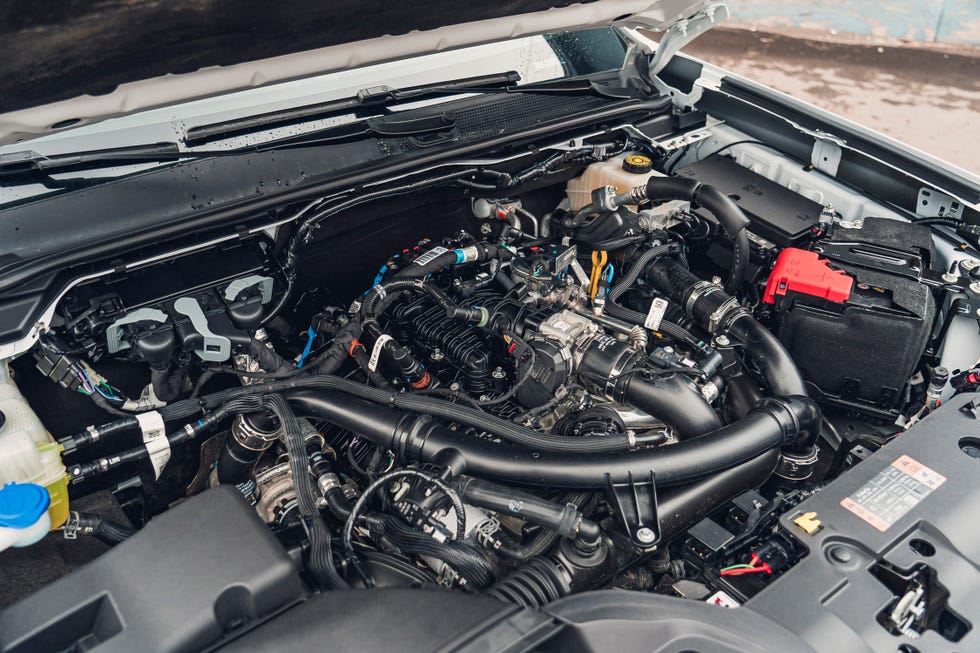Explore the Key Features of the 2.2 Ford Ranger Engine and Its Fuel Efficiency
Explore the Key Features of the 2.2 Ford Ranger Engine and Its Fuel Efficiency
Blog Article
What Makes a Cars And Truck Engine Run Efficiently: Top Tips for Optimum Treatment
The smooth operation of a cars and truck engine is basic to both efficiency and longevity, making optimum treatment an important responsibility for lorry owners. What specific actions should you focus on to ensure your engine remains in peak problem?
Normal Oil Adjustments
One of one of the most crucial aspects of auto maintenance is ensuring your engine receives routine oil changes. Engine oil lubricates inner components, reduces rubbing, and helps maintain ideal operating temperatures. In time, oil deteriorates as a result of warm, pollutants, and the all-natural byproducts of combustion, leading to reduced effectiveness and possible engine damages.
Many makers recommend altering the oil every 5,000 to 7,500 miles, yet this period can vary based upon driving problems and oil kind. For example, artificial oils may allow for longer intervals between changes. Normal oil modifications not only enhance engine performance however likewise boost fuel effectiveness, as clean oil promotes smoother procedure.
Ignoring oil changes can cause sludge accumulation, which harms flow and can lead to extreme engine issues. It is essential to inspect oil levels frequently and keep an eye on for any unusual modifications in shade or consistency, which can show contamination or degradation.

Maintaining Coolant Levels
Maintaining correct coolant degrees is necessary for preventing engine overheating and ensuring ideal performance. The coolant, typically a combination of water and antifreeze, distributes via the engine, absorbing warmth and avoiding thermal tension. Insufficient coolant can cause increased engine temperature levels, which may cause severe damages or even overall engine failing.
To keep optimal coolant degrees, regularly inspect the coolant tank, typically found in the engine bay. Make sure the coolant is loaded to the advised mark, as shown in your vehicle's owner handbook. It is advisable to inspect the degrees at the very least once a month or soon trips, specifically throughout severe climate condition.
If you observe that the coolant degree is consistently low, there might be a leak in the cooling system, which need to be resolved quickly to stop more complications. 2.2 ford ranger engine. Additionally, purging the coolant system every 2 to 3 years can assist eliminate any kind of accumulated particles and make sure reliable warm exchange
Monitoring Air Filters

It is recommended to check the air filter every 12,000 to 15,000 miles, or much more regularly if driving in negative or dusty problems. A Related Site simple visual evaluation can frequently disclose whether the filter is dirty or harmed. If the filter appears blemished or has noticeable dust build-up, it needs to be changed without delay.
Making use of a top notch air filter created for your details lorry model can even more enhance engine performance. In addition, some lorries may gain from multiple-use filters that can be cleansed and re-installed, offering a cost-efficient and eco-friendly choice.
Inspecting Spark Plugs
Ignition system are crucial components of an automobile's ignition system, directly affecting engine performance and performance. They produce the trigger that ignites the air-fuel mixture in the burning chamber, facilitating the engine's power generation. Routine inspection of ignition system is critical for preserving ideal engine function and preventing potential issues.
During an evaluation, look for indicators of wear or damages, such as fractures, carbon buildup, or too much void widening. A healthy and balanced ignition system generally exhibits a light brownish or tan shade. Dark soot or oil down payments can indicate inappropriate burning, while a white or blistered appearance might recommend overheating. Both problems need instant interest to stop further engine damages.
It's recommended to inspect ignition system every 30,000 miles, or as advised in your automobile's proprietor handbook. In addition, take into consideration replacing them according to the manufacturer's standards, as used or old ignition system can bring about misfires, decreased gas efficiency, and enhanced exhausts.
Monitoring Tire Pressure
Under-inflated tires can lead to reduced fuel effectiveness, boosted tire wear, and compromised handling. Regular surveillance of tire stress is crucial for optimum lorry operation.
Tire pressure must be examined a minimum of when a month and eventually journeys. Use a dependable tire stress scale to gauge the stress when the tires are cold, ideally prior to the lorry has been driven for at the very least three hours. Refer to the car's owner guidebook or the placard situated on the motorist's side door jamb for the manufacturer's recommended stress degrees.
It is very important to note that tire pressure can fluctuate with changes in temperature; a drop of 10 ° F can cause a 1-2 psi reduction in pressure. In addition, visually check tires for any signs of wear or damages during your surveillance routine. Preserving proper tire stress not only improves lorry security yet likewise improves fuel efficiency and extends tire life, eventually contributing visit this site right here to a smoother engine efficiency.
Final Thought
To conclude, maintaining a vehicle engine's smooth operation calls for diligent interest to numerous vital elements. Regular oil changes, proper coolant degrees, tidy air filters, well-maintained spark plugs, and optimum tire stress collectively add to improved efficiency and longevity. my explanation Complying with these upkeep practices not just boosts gas efficiency however likewise advertises a safer driving experience. Eventually, an aggressive strategy to engine care is important for guaranteeing dependability and performance with time. 2.2 ford ranger engine.
One of the most important elements of auto maintenance is ensuring your engine receives normal oil changes. Engine oil lubes internal parts, minimizes friction, and aids maintain optimal operating temperatures. Routine oil adjustments not only improve engine performance yet additionally boost gas efficiency, as tidy oil promotes smoother procedure.
Inadequate coolant can lead to increased engine temperatures, which may cause severe damages or even total engine failure.

Report this page